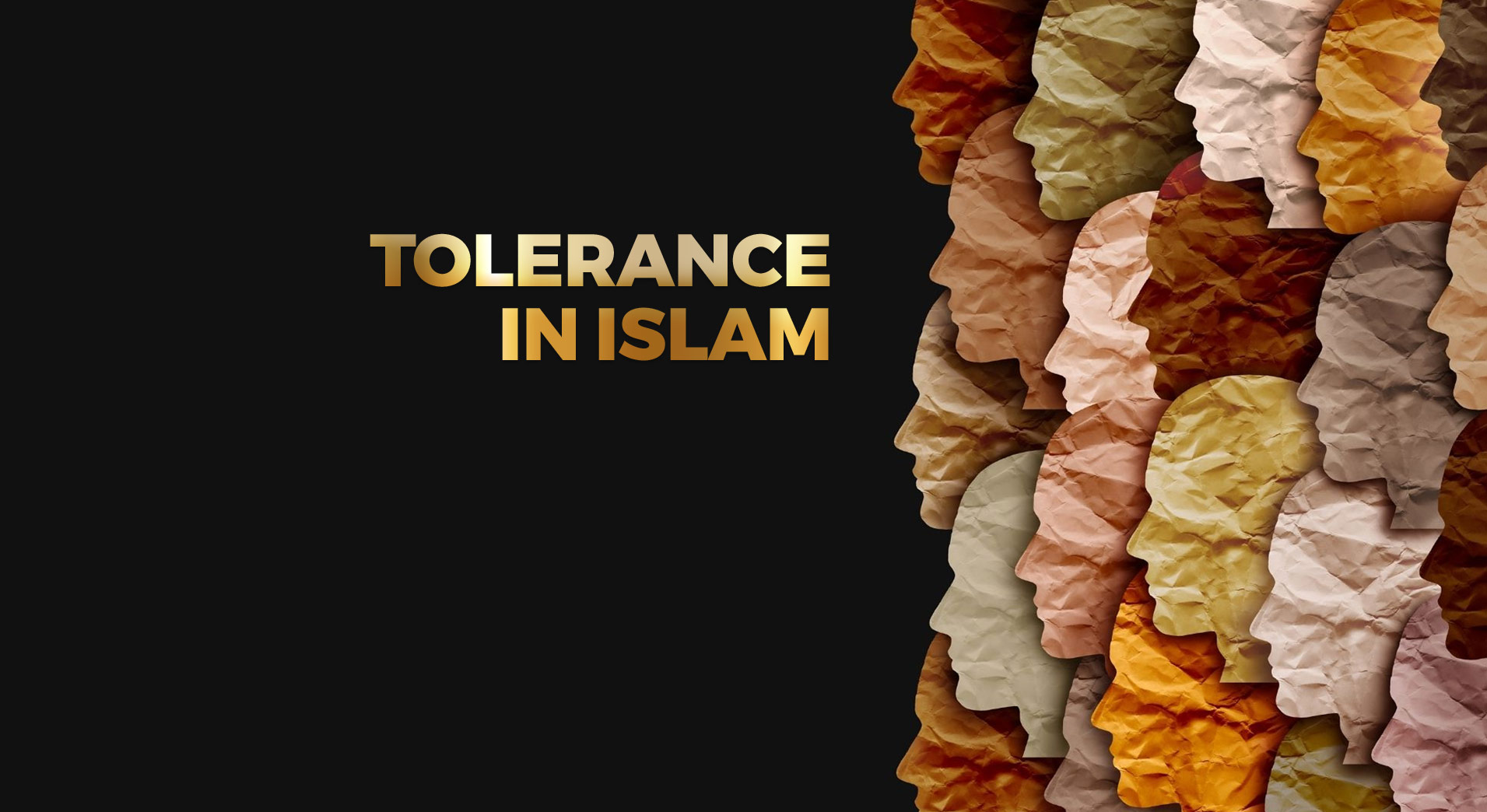Be Misal Bashar
بے مثل و بے مثال بشرﷺ الحمداللّٰہ رب...

Tolerance is a fundamental principle in Islam, and it is rooted in the Quranic teachings and the examples set by the Prophet Muhammad (pbuh). The word “tolerance” comes from the Latin word “tolerare,” which means to bear or endure. In the Islamic context, tolerance refers to the ability to accept and respect the beliefs, practices, and opinions of others, even if they differ from one’s own.
Tolerance is an important principle in Islam and is considered one of the core values of the faith. The Quran teaches that all people are equal in the eyes of God and that there is no superiority of one person over another based on race, ethnicity, or nationality. Muslims are taught to treat everyone with kindness and respect, regardless of their background or beliefs.
The Quran stresses the importance of treating all people with kindness and respect, regardless of their religious or ethnic background. It encourages Muslims to be patient and forgiving, even in the face of adversity. Islam also emphasizes the importance of religious freedom and prohibits coercion in matters of faith. The Quran states that there is no compulsion in religion and that each person is free to choose their path.
Islam promotes tolerance in many ways, including through its teachings on the unity of humanity and the importance of treating all people with kindness and respect. The Qur’an, the holy book of Islam, states that all people are created equal and that there is no superiority of one race or ethnicity over another.
In practice, however, tolerance in Islam can vary depending on the interpretation of the religion and the culture in which it is practiced. Some Muslim-majority countries have laws and policies that restrict religious freedom and discriminate against religious minorities, while others have more tolerant and inclusive societies.
Overall, tolerance in Islam is an important principle that is central to the faith, and that is based on the belief in the equality and dignity of all people.
One of the key verses in the Quran that highlights the importance of tolerance is Surah Al-Hujurat, verse 13, which states:
“O mankind, indeed We have created you from male and female and made you peoples and tribes that you may know one another. Indeed, the noblest of you in the sight of Allah is the most righteous of you. Indeed, Allah is Knowing and Acquainted.”
This verse emphasizes the unity of humanity and the importance of recognizing the inherent dignity and worth of all people.
Islam also encourages interfaith dialogue and understanding. The Quran teaches that all religions have a common origin and that all prophets have been sent by God to guide humanity.
This understanding of the common origin of all religions is reinforced in the Hadith, which states that
“All of humanity is from Adam and Eve, an Arab has no superiority over a non-Arab nor a non-Arab has any superiority over an Arab; also a white has no superiority over a black nor a black has any superiority over a white except by piety and good action.”
One of the most well-known examples of tolerance in Islam is the concept of “dhimmi,” which refers to non-Muslims living under Muslim rule. The Qur’an specifically states that non-Muslims should be treated with fairness and justice and should not be forced to convert to Islam. Instead, they should be allowed to practice their religion and culture in peace.
This principle of tolerance was put into practice during the early Islamic era when many Jews and Christians were allowed to live and practice their religion freely under Muslim rule.
The Prophet Muhammad (pbuh) also set a powerful example of tolerance during his lifetime. He consistently advocated for peaceful coexistence and mutual respect among different communities. He even went as far as to establish a Charter of Medina, which protected the rights of minorities and ensured that they were treated with fairness and justice.
Despite these teachings of tolerance, there have been instances where Muslims have not lived up to these principles, either through ignorance or through a misinterpretation of Islamic teachings.
Unfortunately, some extremist groups commit violence and terror in the name of Islam, but it is important to remember that these actions are not condoned by Islam and do not reflect the true teachings of the religion.
However, there are instances where the principles of tolerance have been disregarded or misinterpreted, but it’s crucial to remember that these actions do not reflect the true teachings of Islam. The promotion of tolerance and mutual respect is more important now than ever as the world becomes increasingly interconnected and diverse.
In conclusion, tolerance is a fundamental principle in Islam that is deeply ingrained in the teachings of the Quran and the examples set by the Prophet Muhammad (PBUH). It emphasizes the unity of humanity and the importance of treating all people with kindness, respect, and fairness, regardless of their background or beliefs.
Tolerance is an essential principle in Islam that calls for the respect of all individuals, regardless of their race, ethnicity, or religious beliefs. It encourages interfaith dialogue and understanding and prohibits coercion in matters of faith. The true teachings of Islam promote tolerance and respect for diversity, but unfortunately, this principle is not always upheld in practice.